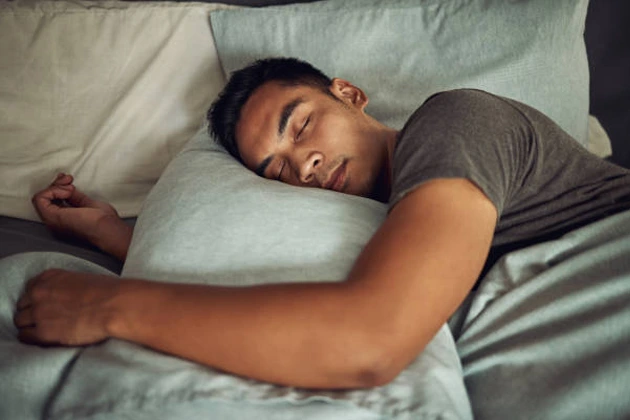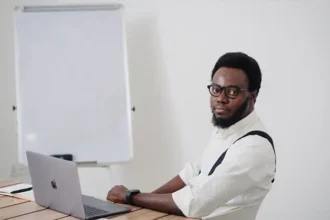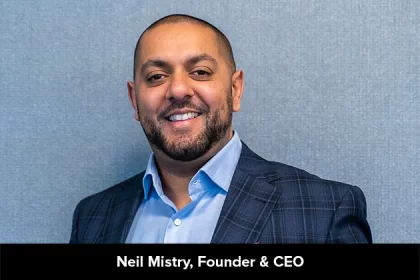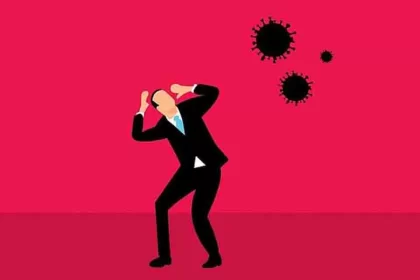Who doesn’t wish they could just lay their head on the pillow and fall asleep within minutes? But for many people, it’s easier said than done. The good news is that there are simple tricks you can try to fall asleep faster. We’ll share these tips in this article and we’ll also talk about when to reach out for help when sleep problems are getting in the way.
Creating a supportive sleep environment goes beyond lighting and temperature. A sturdy bed frame helps keep your mattress stable, reduces movement, and supports proper body alignment, all of which contribute to deeper, uninterrupted sleep. When combined with good sleep habits, the right bed frame can noticeably improve overall sleep quality.
Why do we struggle to fall asleep?
Sleep is essential for good health. Yet, around 15% of people have trouble falling asleep. Why is that?
Getting a good night’s sleep isn’t always easy. Many things can stand between you and the rest you need. Here are just a few examples:
- Age. Sleep patterns naturally change with age. As a result, many older adults experience trouble falling and staying asleep.
- Mental health issues. Dealing with mental health challenges like depression and anxiety can make it harder to fall and stay asleep during the night.
- Physical health problems. Certain illnesses and conditions can make it more difficult to fall asleep. This includes sleep disorders like insomnia and sleep apnea. Conditions that cause ongoing pain, such as arthritis, neurological disorders like Alzheimer’s disease, and gastroesophageal reflux disease (GERD) can also disrupt sleep.
- Medications. Not being able to fall asleep could be a side effect of medications. Medicines that can disrupt sleep include antidepressants, anxiolytics, antihypertensives, cholesterol medications, and anti-inflammatory drugs.
- Environment. Nearly 40% of Americans struggle to sleep at night due to external noise or exposure to indoor or outdoor light. Being too hot or too cold, sharing a bed, or sleeping in an uncomfortable mattress can all make it harder to get a good night’s sleep.
- Lifestyle. Drinking alcohol and eating heavy food before bed can make it harder to fall asleep at night. Individuals going through substance abuse may also experience trouble sleeping. Not getting enough exercise can also lead to poor sleep.
- Sleep habits. Having a poor sleep schedule makes you more likely to have trouble falling asleep.
- Work. People who work in shifts may find it hard to adjust to different sleep/wake schedules. This can lead to issues with falling or staying asleep.
Practical tips on how to fall asleep faster
Everyone is different when it comes to the time it takes to fall asleep. Most healthy people take about 10 to 20 minutes. If you nod off in less than 5 minutes, you might not be getting enough rest. But if it takes more than 30 minutes, it could be a sign of insomnia.
It’s a good idea to talk to a health professional to check if your time to fall asleep is within a healthy range.
Things like stress and a problematic sleep schedule are easily managed. But if you have a more serious health issue, you may need professional help.
Either way, a few tricks can help you fall asleep faster. They are easy to implement, and you can try them by yourself.
Optimize your sleep environment
A good night’s sleep starts with a cozy sleep environment. This means clean and comfortable pillows, mattresses, and bedding.
Keeping your room cold, around 65°F (18°C), is ideal for better sleep. Make the room as dark as possible. Blackout curtains and a draft stopper under the door can help. And get rid of any white or blue light from TVs or cellphones.
Noise from traffic, pets, and bed partners can mess with your sleep. Try using an earplug or a white noise machine to camouflage these noises.
Set a consistent sleep schedule
Circadian rhythms are physical, mental, and behavioral changes that occur over a 24-hour cycle. Light and dark have a big influence on our circadian rhythms. Things like food, temperature, stress, and physical activity can also affect them.
Sticking to a consistent schedule helps keep your internal clock aligned with the 24-hour cycles. This makes it easier for your body to recognize when it’s time to sleep and wake up.
Limit caffeine and alcohol intake
Caffeinated drinks are not the best choice before bedtime. Caffeine blocks adenosine, a chemical that makes you sleepy, keeping you awake. Ideally, you should stop drinking coffeeabout eight hours before going to bed.
Thinking that alcohol helps you fall asleep faster is a myth. Drinking before bed actually messes with your sleep. It disrupts your brain’s rhythms, stops you from getting deep sleep, and can leave you dehydrated and more alert. The result? Restless sleep and waking up feeling tired.
Try relaxation techniques
When you’re stressed, your body releases cortisol and adrenaline. These hormones keep you alert. Having a racing mind doesn’t make falling asleep any easier. You might find yourself thinking about that report on due, the bills that need paying tomorrow, or a favor you promised your mom.
Relaxation techniques can help keep stress from ruining your sleep. Here are a few options for you to try:
- Deep breathing. It involves breathing in slowly through your nose and out through your mouth. It helps to relieve tension, stress, and anxiety.
- Meditation. It uses mental and physical techniques to help you focus and clear your mind.
- Progressive muscle relaxation (PMR). This relaxation technique involves contracting and relaxing each muscle group. It moves gradually through the entire body.
Mind your evening activities
What you do in the hours before bed can significant impact how quicky you drift off. Certain activities can make it harder for the body to wind down. Instead, focus on building a relaxing bedtime routine.
Here are a few tips to help you with that:
- Stop using electronic devices at least one hour before going to bed.
- Stop consuming caffeine at least eight hours before bedtime.
- Avoid exposure to stimulating content in the hours before bed.
- Avoid intense exercise close to bedtime.
- Focus on calming activities such as reading a book, meditating, listening to music, or taking a warm bath.
Limit naps during the day
Short naps are a great way to stay alert and boost performance during the day. But to get the most benefit, you need to keep them brief.
Naps should last between 15 and 30 minutes. Napping for too long can make it harder to fall asleep at night.
When to seek professional help?
We all have those night where we’re tossing and turning – especially when we’re stressed. Usually things get back to normal once things settle down.
But there are a few signs that could indicate there’s a bigger sleep issue going on. Reach out for professional help if:
- You have trouble falling and staying asleep.
- You wake up multiple times during the night.
- You feel tired during the day.
- Sleep problems persist or interfere with your ability to function.
Falling asleep doesn’t have to be so hard. If you develop healthy sleeping habits, everything else becomes easier. Focus on having a consistent sleep routine and creating a comfortable sleeping environment. Avoid things that disrupt sleep, such as alcohol, caffeine, electronics, and intense exercise before bedtime. Instead, do calming activities like meditation or reading. Take short naps and keep stress under control. If nothing works and you still have trouble falling or staying awake, talk to your doctor.
Have you had trouble falling asleep before? Do you have any tips that help you fall asleep faster? Feel free to share your thoughts in the comments below!
FAQs
- Why is it so hard for me to fall asleep quickly?
There are various reasons it might be hard to fall asleep quickly. These include stress and anxiety, poor sleep hygiene, caffeine, alcohol, and health issues.
- Are there any foods that help with falling asleep faster?
Yes. Certain foods can help you fall asleep faster because they contain nutrients that promote relaxation. Examples include almonds, turkey, cherries, and milk.
- What are the best relaxation techniques for faster sleep?
Some of the best relaxation techniques include deep breathing, progressive muscle relaxation (PMR), and meditation.
- Should I just stay up if I can’t sleep?
Yes. If you can’t fall asleep, it’s better to get up and do something relaxing. Go back to bed when you feel sleepy.
- How to sleep fast in 5 minutes?
Good sleep hygiene can help you fall asleep faster. You should aim to fall asleep in 10 to 20 minutes.










